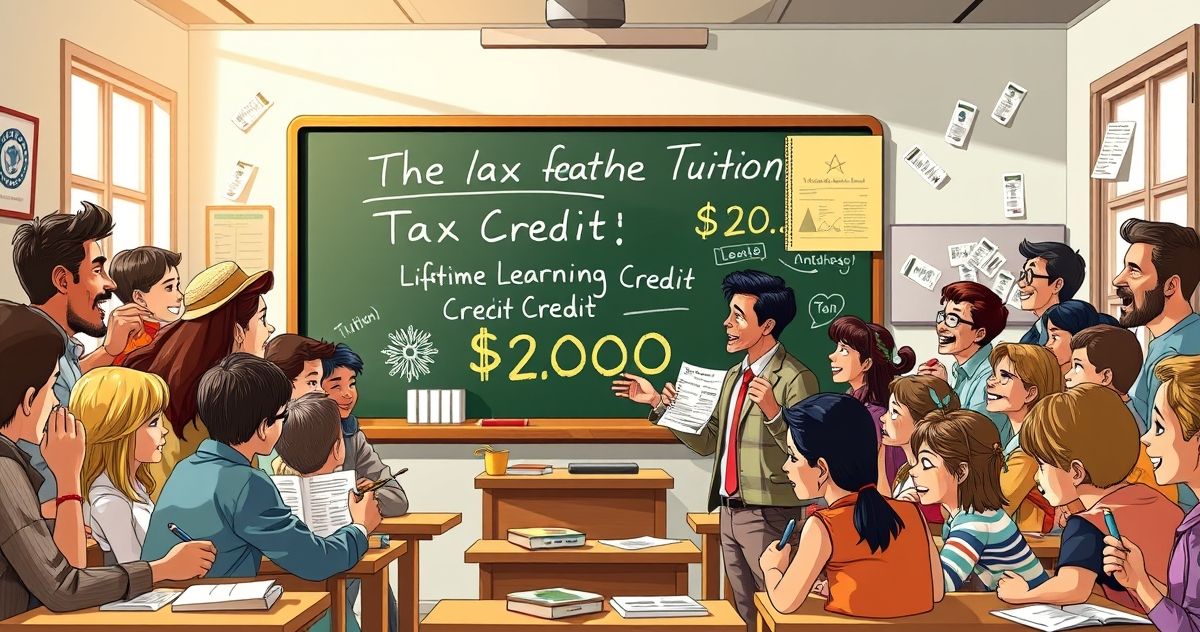Lifetime Learning Credit: A Comprehensive Guide
The Lifetime Learning Credit (LLC) is a valuable educational tax benefit available to eligible taxpayers in the United States. Introduced as part of the U.S. government’s efforts to promote higher education, the LLC helps families and students offset the cost of tuition and other educational expenses. This tax credit can be particularly beneficial for those continuing their education or pursuing lifelong learning opportunities.
What is the Lifetime Learning Credit?
The Lifetime Learning Credit is a nonrefundable tax credit aimed at helping taxpayers cover qualified tuition and related expenses. Unlike some other tax credits that focus only on undergraduate college education, the LLC is available for postsecondary education and courses to acquire or improve job skills. The primary purpose of the LLC is to make higher education more accessible and affordable.
Key Features of the Lifetime Learning Credit
- Maximum Credit: The LLC provides up to $2,000 per tax return. This credit is calculated as 20% of the first $10,000 of qualified education expenses paid for all eligible students. It is important to note that this is a per-return limit, not per-student.
- Eligibility Criteria: To be eligible for the LLC, expenses must be for education provided by a qualified educational institution. The taxpayer, their spouse, or a dependent must be the student, and they need to be enrolled in at least one course taken to acquire or improve job skills.
- No Degree Requirement: Unlike other credits like the American Opportunity Credit, the Lifetime Learning Credit does not require the student to be pursuing a degree or certificate.
- Income Limits: The credit begins to phase out at income levels exceeding $59,000 for single filers and $118,000 for joint filers, as updated according to the inflation standards each year. Taxpayers with modified adjusted gross income (MAGI) above the threshold may be eligible for a reduced credit, while those with significantly higher MAGI are not eligible.
- Nonrefundable Credit: The LLC is nonrefundable, meaning it can reduce your tax liability to zero, but any excess credit will not result in a refund.
Filing and Compliance Requirements
Filing for the Lifetime Learning Credit requires adherence to specific rules and documentation:
- Form 8863: Taxpayers must file IRS Form 8863, Education Credits (American Opportunity and Lifetime Learning Credits), with their federal income tax return to claim the credit.
- Form 1098-T: A Form 1098-T, Tuition Statement, will typically be issued by the educational institution attended by the student. This form provides information necessary for claiming education credits, such as tuition paid and scholarships received.
- Record Keeping: Maintaining detailed records of tuition payments, fees, and other educational expenses is crucial for substantiating the credit if questioned by the IRS. It’s recommended to keep invoices, receipts, and any relevant documentation in case of an audit.
Penalties or Consequences for Non-Compliance
Failure to comply with the requirements for the Lifetime Learning Credit can result in penalties or loss of eligibility. Common issues include:
- Filing Errors: Incorrectly entering amounts or misreporting income could lead to denial of the credit or subsequent IRS inquiries.
- Documentation Missteps: Lack of proper documentation to support the claim may result in disallowance of the credit and potential penalties for negligence.
- Revised Returns: If errors are discovered post-submission, taxpayers could be required to file an amended return, potentially leading to delays and additional research.
Importance in Tax Resolution
The Lifetime Learning Credit plays a vital role in financial planning for taxpayers seeking education. By reducing the overall tax liability, the credit eases financial burdens on families and individuals pursuing educational advancement. It stands as an important tool not just for traditional students but also for professionals seeking continued education to enhance their career prospects. Strategically planning for the LLC can yield significant savings and enable taxpayers to allocate resources more efficiently toward academic and career goals.
In conclusion, understanding and utilizing the Lifetime Learning Credit effectively requires careful attention to eligibility, income thresholds, and filing protocols. By maximizing this tax credit, taxpayers can invest in their education and future without bearing an unnecessarily heavy financial load. It’s always advisable to consult with a tax professional to navigate eligibility and filing requirements for this and other educational tax benefits.

